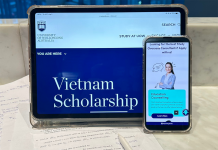Charities fear legislation could stifle autonomy
By Vivian Lai and Jeffrey Loa
Edited by Yoyo Chan
The video footage shows people in wheelchairs collecting money for a charity in a busy shopping area. These same people are then shown standing up and walking away. The video is part of a report published online by the Apple Daily in 2011 which stirred public concern about improper and possibly fraudulent fundraising activities by charities and organisations claiming to be charities.
Concerns about fundraising and the lack of transparency of some charities are not new. Back in 2003, the Office of the Ombudsman published an investigation report on the monitoring of charitable fundraising in Hong Kong. The report concluded that:“Government monitoring of charities is partial and patchy, fragmented and ineffective.” It recommended the government consider setting up a charity registration system.
In 2007, the issue was passed to the Law Reform Commission of Hong Kong which issued a consultation paper in 2011. Among the proposals in the paper were how to define a charity and controversially, the setting up of a charity commission to oversee and monitor the registration of charities.
After six years of deliberations, the commission finally released its recommendations in December last year, making some concessions to concerns from civil society on the establishment of a charity commission and on how to define a charity. Up to March 2013, there were close to 7,600 tax-exempt charities in Hong Kong. Under current regulations, a non-profit organisation can register first as either a company or a society. In order to obtain charitable tax-exempt status, they need to then apply to the Inland Revenue Department.
In the Law Reform Commission’s 2011 consultation paper, charities were classified mainly into those working for the relief of poverty, advancement of education and advancement of religion, with a fourth classification of those working for other charitable purposes beneficial to society but not falling under the other headings.
The list of accepted charitable purposes extended beyond those categories to cover work for the environment, health, the disabled, disaster relief, the environment and animals.
Organisations set up with the aim of advocating for human rights, or changes to existing laws and policies were not included. After many complaints, the commission added human rights to the list in its 2013 recommendations.
But advocates are still dissatisfied that groups campaigning for laws and policies are still excluded from the proposed definition. Legislator Fernando Cheung Chiu-hung, who is also a social work lecturer at Hong Kong Polytechnic, says that advocating for laws and policies is integral to the work of charities and social workers. It is even included in the Code of Practice for social workers.
For Cheung, excluding this work from the definition of charitable purposes raises concerns about censorship and the suppression of charities. He cites the example of Forthright Caucus, a non-government organisation (NGO) he founded to strive for the rights of the underprivileged, such as the disabled, mental health patients and children with learning difficulties. The group has made three attempts to gain charity status from the Inland Revenue Department and was rejected every time.
Correspondence from the Inland Revenue pointed out the group had participated in the July 1 protests to call for more services for the disabled. This was defined as a political activity and the Inland Revenue suggested the group should be more service-oriented and focus less on policy change and advocacy. It asked for amendments to the group’s charter which Cheung refused to make.
Without official charity status, it is hard for Forthright Caucus to access funding and other resources. “The rules are grabbing charities by the neck and squeezing them,” says Cheung.
Another NGO, the Hong Kong Women Workers’ Association (HKWWA) shares a similar experience. The association was founded in 1989 and is a tax-exempt charity. In 2006-2007, the Inland Revenue Department required it to fill in a form to review its charity status. In the form, the association was asked to fill in descriptions of its work and to hand in work and audit reports.

After these were submitted, the Inland Revenue Department quizzed the group about its work, much of which is to fight for women’s employment rights and welfare, including organising and taking part in protests. The department said this work did not fit its charity status and that the group may have violated the regulations of its charity status by organising campaigns.
Apart from the definition of charities and charitable purposes, many groups also voiced opposition to the proposal to set up a charity commission to monitor charities. Fernando Cheung says that in Hong Kong’s current political climate and with its existing political structure, there is a danger that the commission could become a channel to control charities. He says such a body would be able to freeze the assets of a charity, place people on the board of the charity and even deprive it of its charitable status.
Although the commission concluded a charity commission should not be set up at the present time, due to a lack of consensus, it still states it should be a long-term goal to establish a charity commission or centralised regulatory authority for charities.







































